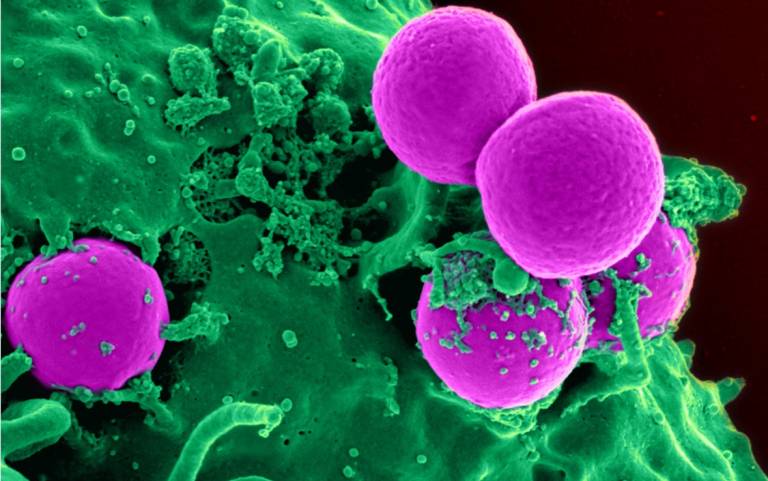Antibacterial coating kills bugs under ambient light
Scientists at UCL have created an antibacterial coating that can kill MRSA and E. coli under low-intensity ambient light.

Light-activated antibacterial coatings are nothing new, but photobactericidal activity generally requires UV light or intense white light in the region of 3,000 lux. The UCL team claims its research, published in Nature Communications, describes the first coating to demonstrate antibacterial properties under ambient light conditions of around 300 lux.
Layered Manuka honey helps battle bacteria
New bandage clots blood but doesn’t stick to wound
“Other coatings have effectively killed bacteria but only after exposure to UV light, which is dangerous to humans, or very intense light sources, which aren’t very practical,” said senior author Professor Ivan Parkin, Dean of UCL Mathematical & Physical Sciences. “We are surprised to see just how effective our coating is in killing both S. aureus (MRSA) and E. coli in ambient light, making it promising for use in a variety of healthcare environments.”
Register now to continue reading
Thanks for visiting The Engineer. You’ve now reached your monthly limit of news stories. Register for free to unlock unlimited access to all of our news coverage, as well as premium content including opinion, in-depth features and special reports.
Benefits of registering
-
In-depth insights and coverage of key emerging trends
-
Unrestricted access to special reports throughout the year
-
Daily technology news delivered straight to your inbox










UK Enters ‘Golden Age of Nuclear’
The delay (nearly 8 years) in getting approval for the Rolls-Royce SMR is most worrying. Signifies a torpid and expensive system that is quite onerous...